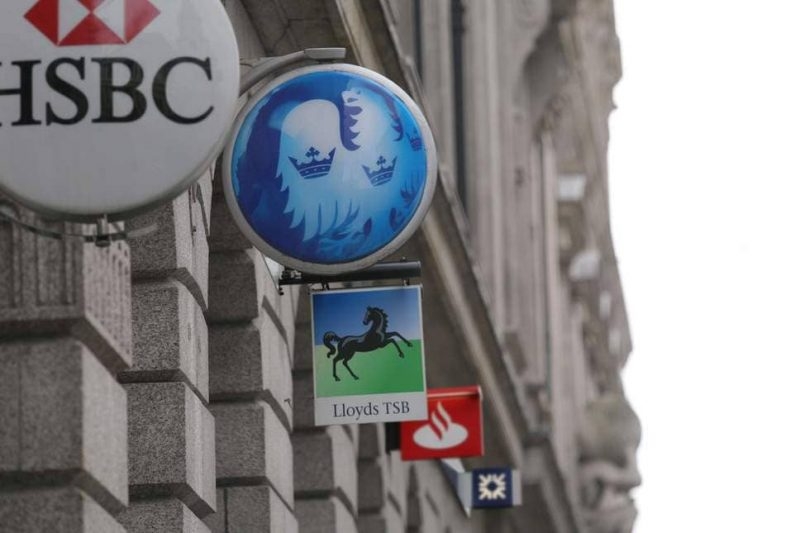
Q&A: Comma’s Ger Kelly on how Open Banking has helped restore SMEs’ trust in UK banks
Ellie Duncan | News
25 May 2022
Ger Kelly, head of banking at Comma, explains how Open Banking in the UK has levelled the playing field between banks and their business and retail customers.
1. What is your role at Comma and what does it involve?
I’m the head of banking here at Comma. I come from a payments background and manage our bank and payment processing activities. I manage our relationships with banks and engage with them on the use cases and the benefits of Open Banking. Then, we work with them to develop fixes for issues we identify through testing and customer usage, but then also push the agenda of what else can be done with Open Banking for the benefit of the industry as a whole.
2. How does Comma work with the major UK banking groups?
The principle of Open Banking is that anyone can access it, but the reality is that these have been built to broad spectrum regulation that don’t specifically cater for distinct use cases.
We take feedback from our customers and our experience of using these APIs to provide the holistic user journey to the banks themselves, to help them understand how we as the third party provider (TPP) are using it, how their customers expect to use it and what’s missing to fill in that gap. It’s very much a feedback loop to benefit the mutual customers between us.
3. How have UK banks embraced the opportunity presented by Open Banking?
This is a story we’re very much still seeing play out. As with anything that’s driven by regulation, there’s a lot of pushing and shoving to bring people to the table. But I think we’re at a tipping point where the banks now have the baseline of Open Banking and they’re really starting to look to the horizon as to what can it mean for them and their roadmaps, but also for their customer experience.

Comma’s head of banking, Ger Kelly
4. There is a narrative that persists, certainly in the UK, that the banks are obliged to take part in Open Banking but that they are often unwilling. First of all, how true do you think this is?
There’s a grain of truth to it. Open Banking is something the banks are still trying to come to terms with. The other piece to this narrative is that the banks are specifically banned from being able to commercialise this. This entirely disincentivises banks’ traditional models as to how they build and use functionality such as Open Banking.
However, now that Open Banking has been properly embedded for a couple of years, we’re starting to see the ecosystem develop. The banks are starting to realise they have come to terms with the fact that Open Banking is here and there is a lot of potential for it to benefit them, as much as consumers. I think that’s where the narrative is changing.
5. What do banks stand to gain from Open Banking in the long run?
It’s possibly a rather crude way of putting it, but at its core what they’re getting is a low cost, or free, outsourced development functionality. Through Open Banking they develop a single set of APIs and it’s then left to the wider market to define how those can be best used to serve the wider market.
We’re moving away from this universal bank model where your bank does everything, where everything is done by whoever has the deepest pockets. Instead, with an Open Banking API, we see individual players, like Comma, who can find specific user journeys and find a way to add value for the banks’ customers. And all of this is to the banks’ passive benefit.
It is one of the key themes we experience when we speak to customers. They come to us and say, “I want to do this thing, but my bank currently can’t do it because of XYZ, what bank can?”. In other words, they have the use case and they just want to find a way to fulfil it.
It’s been a trend in the market for a couple of years now that customers have been more transient between banks, even having multiple bank accounts at the same time for various different purposes. So this very much goes to banks’ customer acquisition strategy that this is a way for them to directly retain customers and compare themselves to other banks with distinct functionality, if not just customer segments.
6. How is Comma working to help both SMEs and banks, while also changing the narrative that exists, as discussed previously?
Firstly, it’s worth looking at what the alternative is for SMEs. It’s a complete shock to most people when they start up a business how much admin is involved. If you look how easy it is to use every other system that businesses typically have to use, banks really are trailing behind.
Our research in the market has shown that small businesses in particular have just come to accept the fact that using their bank is an incredibly painful and usually clunky process, based on technology from the 80s and 90s. As a result, many of them resort to manually keying in their payments and they’ve just accepted that hours of their day every month are taken up with what is, frankly, the most basic function of running a business – just being able to pay your staff and suppliers.
We’re making life easier for our customers by giving them back that time. It’s taking a look at this very distinct problem that small businesses face and asking, “how can this be better?”.
For them, it’s about addressing those pain points as directly as possible, what those drivers are and what the use case that they need to be fulfilled is. Then, taking that back to the bank to understand how we can fulfil this as best as possible. Is that through the existing API applications or do we need to look at going further? All of that requires someone to have those conversations with small businesses who, by and large, have been left behind in the payment journey by the banks.
Banks don’t have the resource or the mandate to solve for every single use case that comes along. So they’re only ever going to solve things that have mass market appeal, or that they have the largest commercial opportunity in, which Open Banking isn’t going to bring.
Our work with banks makes sure we maximise the broad efficiency and effectiveness of those APIs. We’re essentially inviting the entire market to say, using this functionality, what else can we solve? And it’s not just on the bank or the user to find that solution. As a market, we’ll figure a way around it.
7. Finally, do you think Open Banking in the UK has restored businesses’ trust in the banks, or is there still some way to go?
Absolutely, their trust has been restored. At its heart that’s what Open Banking proves.
I mentioned earlier the mobility aspect; customers have come to understand that they do have leverage with the banks. If you don’t like how something works, there are other options out there. All of that combined with Open Banking has shown the customer that they do have power in this relationship.
There’s now a level of transparency: “Here’s your data, what do you want to do with it?” The core of that distrust was the belief that banks were only out for themselves – that they’ll go wherever they can make the most fees.
Open Banking has levelled the playing field because it has put the bank account wholly under the customer’s control. Now you have the power to say, I want to use my account in a way that suits me. That levelling of the power structure in the relationship has allowed people to trust their bank again, knowing that they now have complete access and control over their data.
If you look at the metrics banks are tracking themselves on, the rate of churn and current account switching is becoming the yardstick for how a bank is actually performing against the rest of the market, rather than the more traditional metrics of assets or valuation.
That has woken the banks up to the fact that their customer base is a lot less solid than it may have once been. At the heart is the customer’s decision about how they want to use their bank account and is their bank able to fulfil that.









